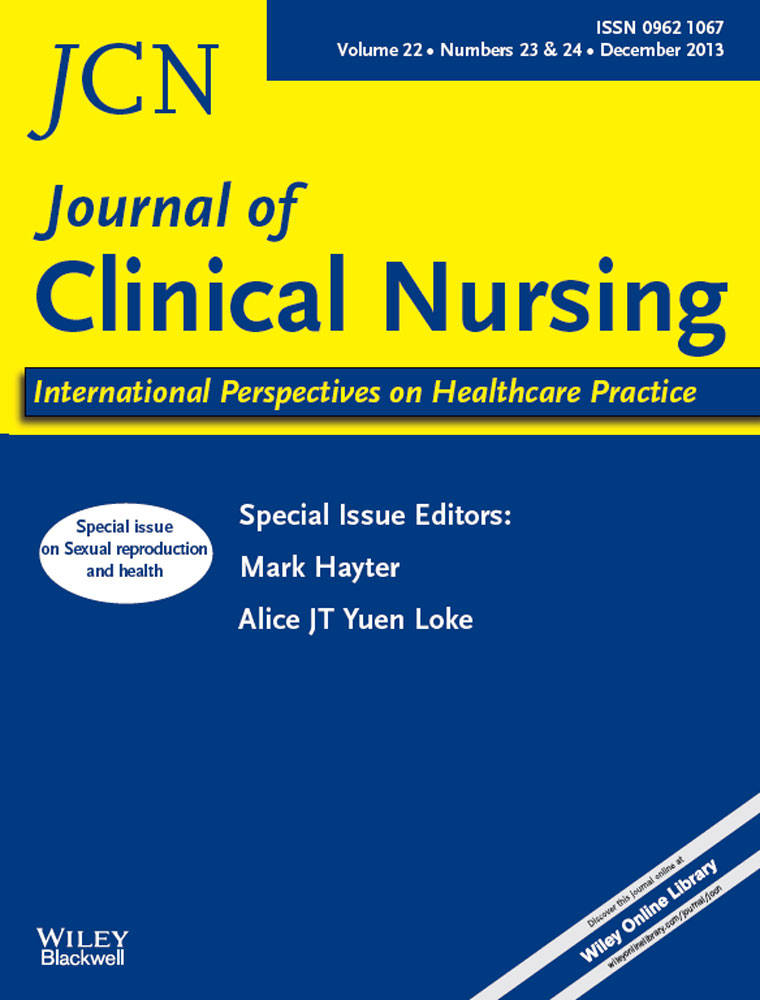An exploration of human papillomavirus-related cervical cancer prevention experiences among college women: a descriptive qualitative approach
Abstract
Aims and objectives
To enhance understanding of young women's experiences of human papillomavirus-related cervical cancer prevention in Taiwan.
Background
High-risk types of human papillomavirus are a key aetiologic factor behind cervical cancer. Recently, human papillomavirus vaccination is considered an effective approach to prevent vaccine-specific typed human papillomavirus-related cervical cancer in women. However, several controversial issues still arise about routine administration of human papillomavirus vaccines, and the literature on young women's protection against human papillomavirus-related cervical cancer is limited.
Design
A descriptive qualitative design categorised responses into themes.
Methods
Sixteen sexually active college women (aged 20–22 years) were recruited via purposive and snow-ball sampling in Southern Taiwan. Every participant underwent an in-depth interview which was audio-recorded and fully transcribed. Analysis of the interview material was inductive and followed a thematic analysis approach. Procedures to confirm confidentiality, credibility and consistency were considered.
Results
This article provides an insight into the college women's experiences in the obstacles to and striving towards breakthroughs of human papillomavirus-related cervical cancer prevention. The obstacles include inadequate health literacy, financial difficulty, negative medical experiences and gender myths. The striving towards breakthroughs consists in self-protection and knowledge support.
Conclusion
College women experience difficulties with human papillomavirus-related cervical cancer prevention. They desire to have a publicly funded human papillomavirus immunisation programme, friendly medical environments, sufficient knowledge and open-minded society to maintain their health. Such reflection information is helpful to design effective human papillomavirus-related cervical cancer prevention campaigns.
Relevance to clinical practice
Young women do not know how to protect against human papillomavirus infection, although human papillomavirus-related cervical cancer prevention methods are definite. This study provides useful information for health care professionals to assess the intervention education and health care to develop a thorough human papillomavirus-related cervical cancer programme. To have control of human papillomavirus-related cervical cancer for young women, personal health care management, prophylactic medicine and Pap tests should be integrated into human papillomavirus-related cervical cancer campaigns.




